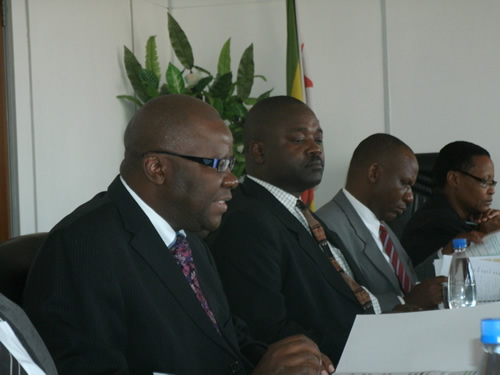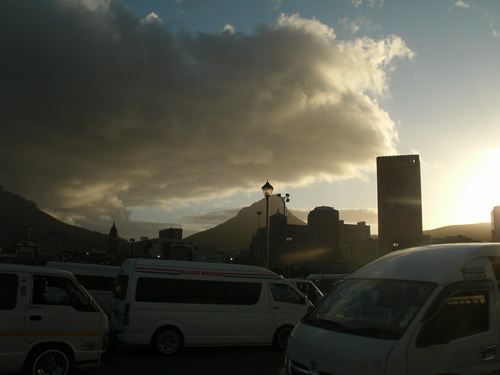Police stories: Cops and robbers
Tuesday, October 4th, 2011 by Upenyu Makoni-MuchemwaWhile getting food with my other this weekend I spotted some policemen patrolling the Pomona food court area and I commented how much safer I felt seeing the familiar neon green vest over khakis milling about.
“Ah! They’re useless.’ He said. ‘But their presence will scare people into behaving.”
His cynicism was well founded. He had been robbed the previous weekend. His roommate had been asleep, while the thieves pried the front door open. By the looks of the place the next day, it seemed as though they had taken their time. They took every valuable thing they could find including the kettle. I suppose they were humanist robbers, because they were decent enough to leave the radio, and return his roommates passport, which had been in the same bag as a laptop and several hundred dollars. Being an avid fan of CSI Miami, my other hoped a Zimbabwean version of Horatio would show up (sunglasses optional), to dust for prints, check for DNA and solve the crime. He didn’t. Instead a crack team of barely interested CID officers came. They dusted for prints and filed a report as a formality, and succeeded in scaring him into considering buying a gun.
A few nights after the robbery, the police set up a road block a hundred metres away from my other’s flat. He stopped to jokingly shout at them for being too late to stop the robbery at his place. They laughed, but in the conversation he had with them, they complained about a lack of respect from the public. People did not want to stop at roadblocks.
Telling me about it later he remarked, ‘It’s their own fault; they should stop asking for bribes and just do their jobs. At least the roadblock will scare the robbers from coming back for some time, so we can make the house more secure.’











